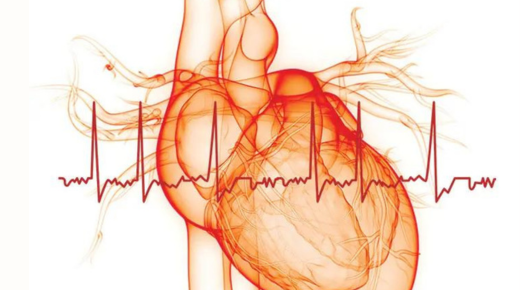Introduction to Atrial Fibrillation
Atrial fibrillation (AF) is a common cardiac arrhythmia characterized by irregular and often rapid heart rate. It can lead to complications such as stroke, heart failure, and other heart-related issues. Effective management is crucial, and a well-structured nursing care plan plays a vital role in patient outcomes.
Understanding the Nursing Care Plan
A nursing care plan is a structured approach to providing individualized care for patients. It includes assessment, diagnosis, planning, implementation, and evaluation. For atrial fibrillation, the care plan focuses on managing symptoms, preventing complications, and educating patients.
Assessment of Atrial Fibrillation
Assessment is the first step in the nursing care plan. It involves gathering comprehensive patient information, including medical history, physical examination, and diagnostic tests like ECG. Understanding the patient’s symptoms and risk factors is essential for effective care.
Nursing Diagnoses for Atrial Fibrillation
Common nursing diagnoses for atrial fibrillation include decreased cardiac output, risk for ineffective cerebral tissue perfusion, and anxiety. These diagnoses help identify the primary issues affecting the patient and guide the planning of appropriate interventions.
Planning Care for Atrial Fibrillation
The planning phase involves setting realistic and achievable goals for patient care. Goals may include stabilizing heart rate, preventing stroke, managing symptoms, and improving quality of life. Each goal should be specific, measurable, attainable, relevant, and time-bound (SMART).
Implementing Nursing Interventions
Implementation involves putting the care plan into action. Interventions for atrial fibrillation include administering medications, monitoring vital signs, providing patient education, and coordinating with other healthcare professionals. Nurses play a key role in ensuring these interventions are carried out effectively.
Medication Management
Medications are crucial in managing atrial fibrillation. Common drugs include anticoagulants to prevent stroke, beta-blockers, and calcium channel blockers to control heart rate, and antiarrhythmics to maintain normal rhythm. Nurses must monitor medication effects and educate patients on adherence.
Monitoring and Managing Symptoms
Regular monitoring of symptoms is vital. Nurses should assess for signs of heart failure, stroke, and other complications. Managing symptoms like palpitations, shortness of breath, and fatigue through lifestyle changes and medication adjustments is crucial for patient well-being.
Patient Education and Support
Educating patients about atrial fibrillation is a key nursing role. This includes explaining the condition, treatment options, and the importance of medication adherence. Providing support and resources for lifestyle modifications and stress management can enhance patient outcomes.
Preventing Complications
Preventing complications such as stroke and heart failure is a primary goal in the care of patients with atrial fibrillation. Nurses should educate patients on recognizing warning signs and encourage regular follow-ups and adherence to prescribed therapies.
Lifestyle Modifications
Encouraging lifestyle changes can significantly impact the management of atrial fibrillation. This includes adopting a heart-healthy diet, engaging in regular physical activity, avoiding excessive alcohol and caffeine, and quitting smoking. Nurses should provide guidance and resources to support these changes.
Psychosocial Support
Atrial fibrillation can cause anxiety and stress. Nurses should assess the patient’s emotional state and provide psychosocial support. This may include counseling, support groups, and stress-reduction techniques such as mindfulness and relaxation exercises.
Coordination of Care
Effective coordination of care among healthcare providers is essential for managing atrial fibrillation. Nurses act as liaisons, ensuring that the patient receives comprehensive care from cardiologists, primary care providers, and other specialists.
Evaluating Patient Outcomes
Evaluation is the final step in the nursing care plan. It involves assessing the effectiveness of interventions and progress toward goals. Regular evaluation helps in making necessary adjustments to the care plan, ensuring that it remains effective and patient-centered.
Communication and Documentation
Accurate communication and documentation are vital in nursing care. Nurses should document all assessments, interventions, and patient responses in the medical record. Clear documentation ensures continuity of care and provides valuable information for other healthcare providers.
Managing Acute Episodes
During acute episodes of atrial fibrillation, immediate nursing interventions are required. This includes monitoring vital signs, administering emergency medications, and preparing the patient for potential procedures like cardioversion.
Patient Empowerment
Empowering patients through education and support helps them take an active role in managing their condition. Nurses should encourage patients to ask questions, seek information, and participate in decision-making regarding their treatment plan.
Use of Technology in Care
Technology can enhance the management of atrial fibrillation. Nurses should be familiar with devices like portable ECG monitors and health apps that help patients track their heart rate and symptoms. Utilizing technology can improve monitoring and adherence.
Nutritional Guidance
Diet plays a significant role in managing atrial fibrillation. Nurses should provide nutritional guidance, emphasizing a diet rich in fruits, vegetables, whole grains, and lean proteins. Limiting salt, saturated fats, and sugars is also important for heart health.
Addressing Co-morbid Conditions
Patients with atrial fibrillation often have co-morbid conditions such as hypertension, diabetes, and obesity. Effective management of these conditions is essential. Nurses should coordinate care to address all aspects of the patient’s health.
Holistic Care Approach
A holistic approach to care considers the physical, emotional, and social aspects of the patient’s health. Nurses should adopt a holistic perspective, ensuring that all patient needs are addressed in the care plan.
Patient Safety Measures
Ensuring patient safety is a top priority. Nurses should implement measures to prevent falls, manage medication safely, and educate patients on recognizing and responding to symptoms. Creating a safe environment is essential for effective care.
Continuity of Care
Continuity of care is crucial for patients with atrial fibrillation. Nurses should ensure smooth transitions between different levels of care, such as from hospital to home. Follow-up appointments and clear instructions help maintain continuity.
Professional Development for Nurses
Ongoing education and professional development are essential for nurses managing atrial fibrillation. Staying updated on the latest guidelines, treatments, and best practices ensures that nurses provide the highest standard of care.
Conclusion
A comprehensive nursing care plan for atrial fibrillation involves assessment, diagnosis, planning, implementation, and evaluation. By focusing on patient education, symptom management, and prevention of complications, nurses play a critical role in improving patient outcomes and quality of life.




